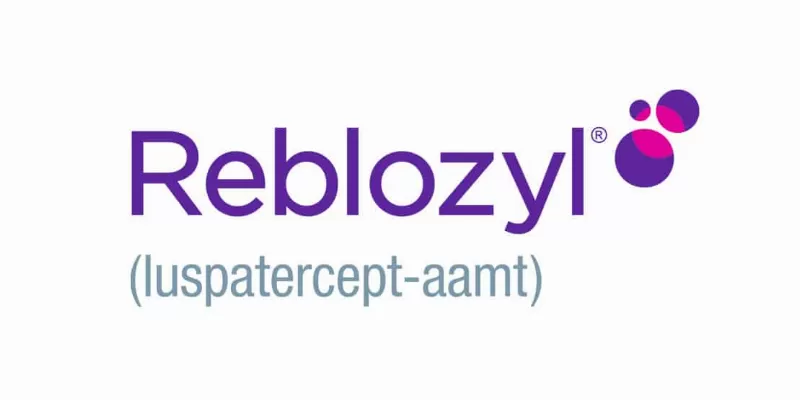FDA Grants Expanded Approval to Bristol Myers' Reblozyl for MDS Treatment

30 August 2023
FDA has enhanced the approval parameters for Bristol Myers Squibb's Reblozyl, paving the way for its broader application in treating myelodysplastic syndromes (MDS). This approval allows the medication to be used for individuals newly diagnosed with a disease resembling cancer that affects the bone marrow.
Reblozyl has been accessible in the U.S. since 2019, when the U.S. Food and Drug Administration (FDA) authorized its use for treating anemia caused by the blood disorder beta thalassemia. Following its acquisition of Celgene in the same year, BMS has been working to expand Reblozyl's applications and anticipates global sales of the drug to surpass $4 billion by the close of the decade.
The comprehensive Phase 3 COMMANDS trial served as the cornerstone for the FDA's decision. Within this study, Reblozyl was rigorously tested against epoetin alfa, a traditional treatment for anemia in MDS patients. The findings were resoundingly in favor of Reblozyl, with 58.5% of its recipients experiencing increased hemoglobin levels and achieving red blood cell transfusion independence, as opposed to the 31.2% using epoetin alfa. This implies that the drug can effectively counter chronic anemia, offering a higher rate of success and perhaps a brighter prognosis for patients.
Results from a study showcased at the American Society of Clinical Oncology meeting in May highlighted the extensive benefits of Reblozyl. In a Phase 3 trial, Reblozyl was found to be more effective than Epogen, a medication that has been utilized to treat anemia in MDS patients for many years.
In the Phase 3 COMMANDS trial, results showed 58.5% (n=86) of patients treated with Reblozyl vs. 31.2% (n=48) of patients treated with epoetin alfa achieved the primary endpoint of RBC-TI of at least 12 weeks with a mean Hb increase of at least 1.5 g/dL within the first 24 weeks (p<0.0001). The most common (>10%) adverse reactions were diarrhea, fatigue, hypertension, peripheral edema, nausea, and dyspnea.
Dr. Guillermo Garcia-Manero of The University of Texas MD Anderson Cancer Center provided insights into the broader implications of these findings. He pointed out the limitations of current standard treatments, stating that existing therapies have often fallen short, with just one in three patients responding positively within a duration of 6-18 months.
“Results from the COMMANDS study showed nearly twice as many patients treated with Reblozyl achieved transfusion independence of at least 12 weeks and concurrent hemoglobin increase compared to epoetin alfa. Today’s approval represents an important advancement for patients with lower-risk MDS,” Dr. Guillermo Garcia-Manero noted.
BMS Strengthens Stance with Reblozyl Amid Patent Concerns
Bristol Myers, stands on the precipice of patent cliffs for some of its leading drugs, including the blood thinner Eliquis and the cancer medication Opdivo, which collectively generated sales surpassing $20 billion last year. In this light, Reblozyl's extended approval fortifies the company's foothold in the medical market, positioning it as a frontrunner in innovative hematological solutions.
Given the number of MDS patients battling chronic anemia and requiring regular red blood cell transfusions, Reblozyl's wider approval spectrum can significantly alter the trajectory of MDS treatment. By catering to a larger patient base, including those in earlier stages of the condition, Bristol Myers showcases its dedication to pioneering transformative therapies in the realm of hematology.
COMMANDS Study Results
COMMANDS (NCT03682536) is a Phase 3, open-label, randomized study evaluating the efficacy and safety of Reblozyl versus epoetin alfa for the treatment of anemia due to very low-, low- or intermediate-risk (IPSS-R) myelodysplastic syndrome (MDS) in patients who are red blood cell (RBC) transfusion dependent and were erythropoiesis stimulating agent (ESA)-naïve.











Comments
No Comments Yet!